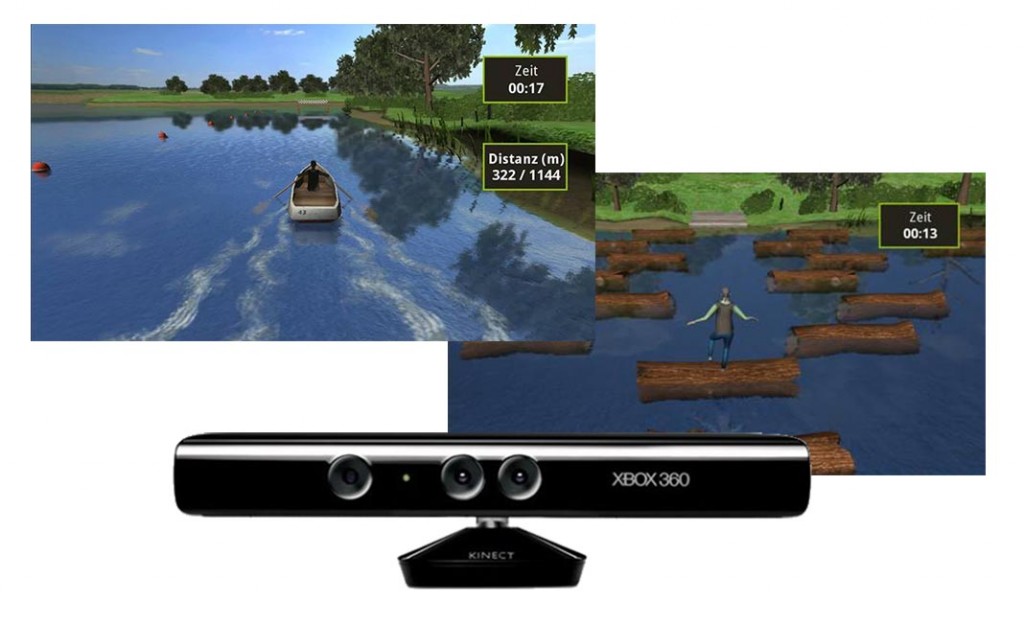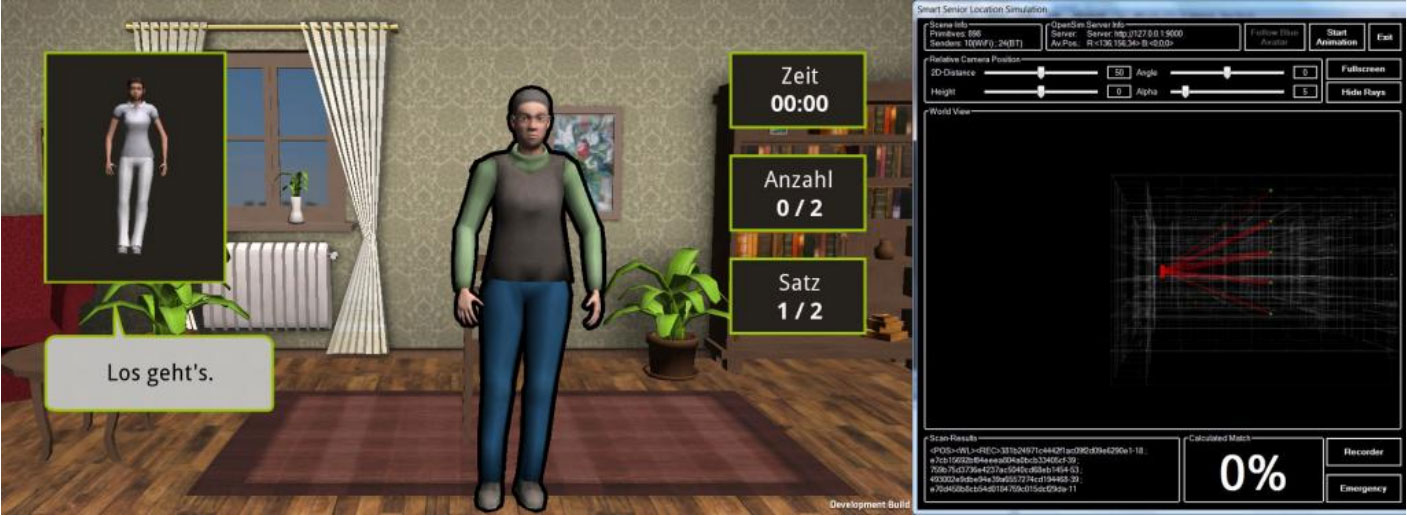The aim of the SmartSenior research project was to develop technologically innovative services that enable older people to continue living in their own homes longer, and stay independent longer. The project provides intelligent living environments that help older people protect their quality of life, in terms of health, social interaction and financial position. The project, which was supported by the Federal Ministry of Education and Research (BMBF), brought together 28 partners, including large corporations, research institutes and small and medium sized enterprises (SMEs).

Interactive Coach – an Independent Rehabilitation Training System after Apoplexy
The interactive coach, jointly developed by DFKI, FhG FIRST, Charité and Nuromedia, is a technical assistant system, which supports seniors suffering from apoplexy. Furthermore it aids the patient with preventing falls in the elderly. Two virtual characters assist the seniors to relearn or keep their mobility: A virtual coach on the screen motivates seniors to complete individual training programs, with which they are able to clearly improve their restricted mobility. Telemedical monitoring instantly gives feedback and increases the security for the training participants at the same time. The second virtual character, an avatar, copies and captures the participant’s movements by kinect sensor cameras as well as body movement sensors. For movement analysis the senior’s data are being fused. A multimodal dialog system leads the user through the training units. The multimodal dialogue system, developed by DFKI, leads the user through their workouts, motivates and corrects them.

Left: Interactive Coach, Right: SmartSenior localization simulation
Emergency Localization
The emergency assistance system, which was developed for SmartSenior, helps to determine medical emergencies using measurement data and vital sensor technology and then automatically informs a rescue hotline per eCall. Besides the personal data of the victim and a classification of the emergency, a description of the location is also transmitted, which enables the emergency response staff to arrive quickly at the scene of the accident. A positioning component developed at DFKI delivers information about the location. The component is capable of locating the user both indoors and outdoors as well as in mobile environments. This involves the use of various technologies, including GPS, GSM, WLAN, and Bluetooth fingerprinting. A simulation environment had to be constructed for the evaluation of these new technologies. This permits rapid switching between the positioning methods and the visualization of how the positioning technology actually functions. The CeBIT 2012 installation demonstrates the indoor positioning algorithms in the simulation environment as well as in the real environment of the fair grounds.

Website
www.smart-senior.de